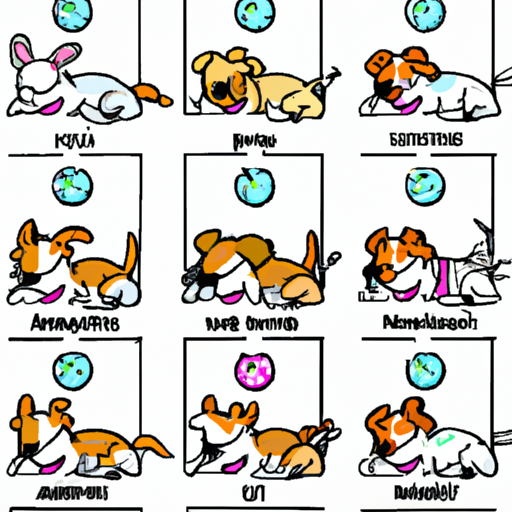Understanding Your Dog’s Sleep Patterns
As a caregiver, you’ve probably noticed that your dog spends a lot of time sleeping. But how much sleep does your furry friend really need? This varies depending on factors such as age, breed, and activity level. On average, adult dogs sleep between 12 to 14 hours a day. Puppies, older dogs, and certain breeds may sleep even more.
The Importance of Sleep for Dogs
Just like you, sleep is crucial for your dog’s health and wellbeing. It’s during sleep that their body repairs itself, their immune system strengthens, and they recharge for the next day. Lack of sleep can lead to:
- Decreased Immunity
- Poor Memory and Cognitive Function
- Increased Risk of Accidents
- Behavioural Changes
How to Tell If Your Dog Is Getting Enough Sleep
There are several signs you can look for to determine if your dog is getting adequate sleep. These include:
- Regular sleep-wake cycles
- No excessive daytime sleepiness
- No difficulty falling asleep or staying asleep
- No unusual movements or behaviours during sleep
If your dog exhibits any unusual sleeping behaviours, it could be a sign of a health issue and you should consult your vet.
Factors That Affect Your Dog’s Sleep
Several factors can affect how much your dog sleeps. Here’s a brief overview:
| Factors | Description |
|---|---|
| Age | Puppies and older dogs typically need more sleep than adult dogs. |
| Breed | Some breeds, like bulldogs and mastiffs, are known to be heavy sleepers. |
| Health | Health issues or medications can increase your dog’s sleep. |
| Activity | Active dogs may require more sleep for recovery. |
Encouraging Healthy Sleep Habits for Your Dog
You can help your dog get a good night’s sleep by:
- Keeping a consistent daily routine
- Providing a comfortable sleeping environment
- Ensuring they get plenty of exercise during the day
- Limiting food and water close to bedtime
FAQs
Q: Do dogs dream?
A: Yes, dogs do dream. Just like humans, they go through REM sleep cycles where dreaming occurs.
Q: What if my dog is sleeping too much?
A: If you notice a sudden increase in your dog’s sleep or other concerning signs, it’s best to consult with a vet.
Q: Can dogs have sleep disorders?
A: Yes, dogs can suffer from sleep disorders like insomnia or sleep apnea. If you notice any unusual sleep behaviors, contact your vet.
Q: How can I help my dog sleep better?
A: Regular exercise, a consistent routine, and a comfortable sleep environment can all help improve your dog’s sleep.
Remember, as a caregiver, you’re not just responsible for your dog’s physical health, but their sleep health too. By understanding their sleep needs and patterns, you can ensure they get the rest they need to live a happy, healthy life.



